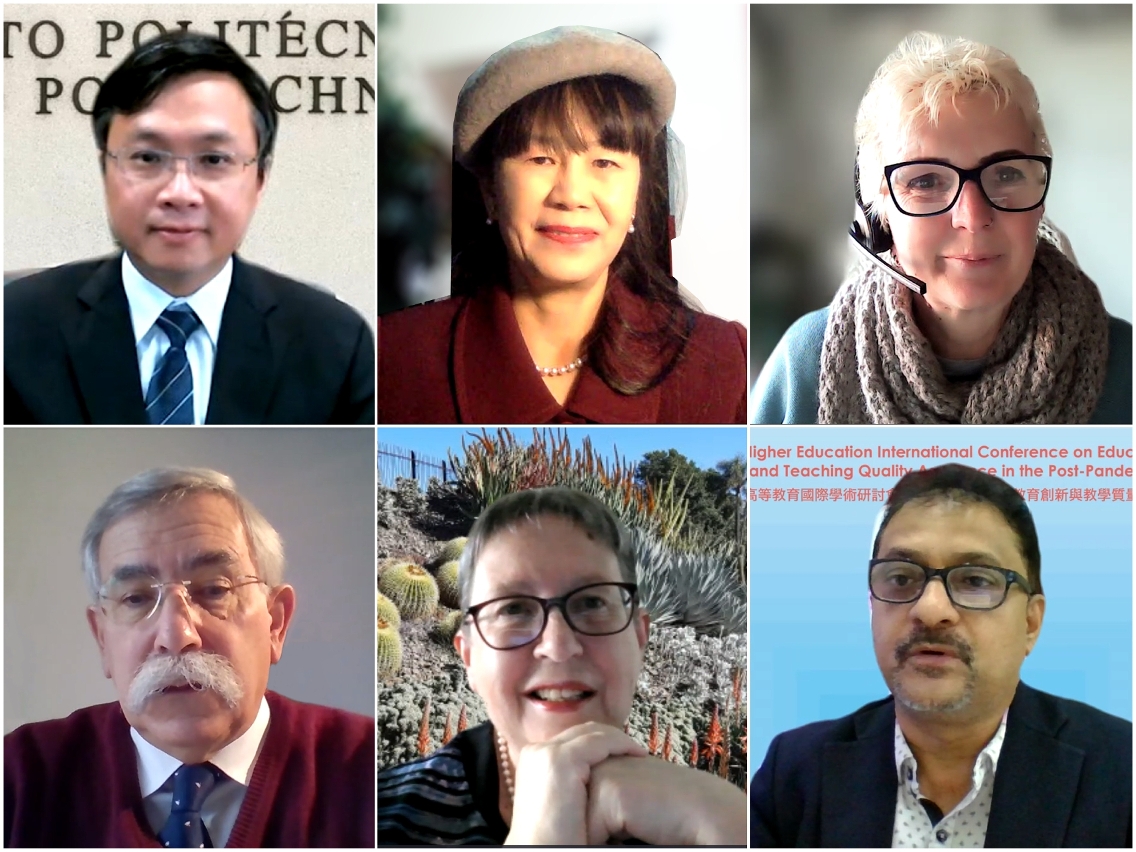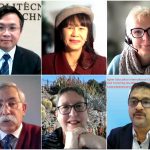 Macao Polytechnic Institute (MPI) and the Asia Pacific Quality Network (APQN) jointly organised “The 13th Higher Education International Conference”
Macao Polytechnic Institute (MPI) and the Asia Pacific Quality Network (APQN) jointly organised “The 13th Higher Education International Conference”
The Macao Polytechnic Institute (MPI) and the Asia Pacific Quality Network (APQN) jointly organised “The 13th Higher Education International Conference on Education Innovation and Teaching Quality Assurance in the Post-Pandemic Era” from 22nd to 23th November, 2021 via Zoom platform. Over 30 experts from England, Portugal, Australia, Japan, Turkey, India, Bangladesh, Pakistan, Sri Lanka, Mongolia, cross-straits, Hong Kong and Macao presented their papers. The online conference attracted 200 experts and PhD candidates from all over the world to participate. They actively engaged in exchanging views and interacting freely during the conference.
Professor Im Sio Kei, President of MPI delivered the opening speech, remarking that due to the impact of the pandemic, different countries and regions around the world have continued to adjust their teaching models in response to the development of the pandemic, with these models differing significantly from traditional teaching models. MPI and APQN actively took on the role of building a platform and cooperating for the seventh time in hosting the higher education international conference in exploring education innovation and quality assurance in the post-pandemic era. It was hoped that through this “cloud discussion”, a platform for exchanges and sharing between Macao and universities and institutions around the world would be built, and thus contribute to the new development of higher education.
Professor Jianxin Zhang, President of APQN congratulated the successful convening of the conference on behalf of 222 member organisations from 41 countries. She expressed her gratitude towards MPI for the cooperation building a platform for higher education since 2014. She exclaimed that the conference theme of this year was a good theme for educators who were still affected by the pandemic. By recognizing the importance of educational innovation, online teaching and online learning, new evaluation standards and direction can be established for good higher education quality.
This conference invited famous scholars of higher education quality assurance to deliver keynote sessions. Professor João Guerreiro, President of the Management Board of the Portuguese Agency for Evaluation and Accreditation of Higher Education (A3ES) presented “Quality Assurance is Decisive for Higher Education”. He compared the distance learning mechanism with the current practice adopted in emergency situations, and found that the differences between the two were substantial. In the case of distance learning, there are specific pedagogical models, asynchronous sessions, specific and flexible curricular structures, adaptation to the diversity of student profiles, more pronounced autonomous work procedures, appropriate formative and summative evaluation criteria, etc. He exclaimed that it was worth stressing the importance of quality assurance procedures to ensure that the accreditation of higher education courses maintained good international practice. Dr. Jagannath Patil, Chairperson of Asia Pacific Quality Register (APQR), delivered “Quality & Mobility beyond Borders: Exploring Innovation in the New Normal”. He pointed out that in response to the pandemic and the acceleration of education demand, the two latest trends in the digital transformation of the education industry are the expansion of distance education and the continuous innovation of education technology. He suggested that countries should support the construction of IT infrastructure and train educators to shift to digital teaching under the new normal. In addition, he also suggested that the evaluation institutions should construct a framework of accreditation for online courses, actively engage in building a bridge to the digital future.
Ms. Vicki Stott, Chief Executive of Quality Assurance Agency for Higher Education (QAA) in the United Kingdom, delivered “Innovation in Quality Assurance in the Post-Pandemic Era”. She expressed that the assessment methods in the post-pandemic era needed to be continuously innovated. Special attention should be paid to protect academic integrity and tackling cheating, plagiarism and academic misconduct in the online landscape. She pointed out that evaluation agencies must ensure that online inspections can replace on-site campus visits and face-to-face dialogues with students when conducting quality evaluations under the pandemic. The internal evaluations should ensure that the procedures meet the requirements. Professor Jianxin Zhang, President of APQN, presented “The Development of APQN Standard for Online-Teaching Quality Assurance”. Online surveys were collected through the APQN platform since the outbreak of the pandemic, showing that the quality of online higher education teaching in the Asia-Pacific region was not optimistic. The researchers developed “APQN standard for online-teaching quality assurance". APQN Standard consists of five criteria: online-teaching environment, teachers' online teaching, learners’ online learning, presentation of online-teaching outcomes and online-teaching quality assurance. It provides a reference for the high-quality development of online teaching.
In this two-day conference, more than 30 scholars presented papers in six parallel sessions exploring innovations, teaching and learning quality assurance of higher education in the post-pandemic era. In addition, the application of information technology under the trend of online education, etc. were discussed actively. The participants exclaimed that they benefited from the exchanges at this conference.


